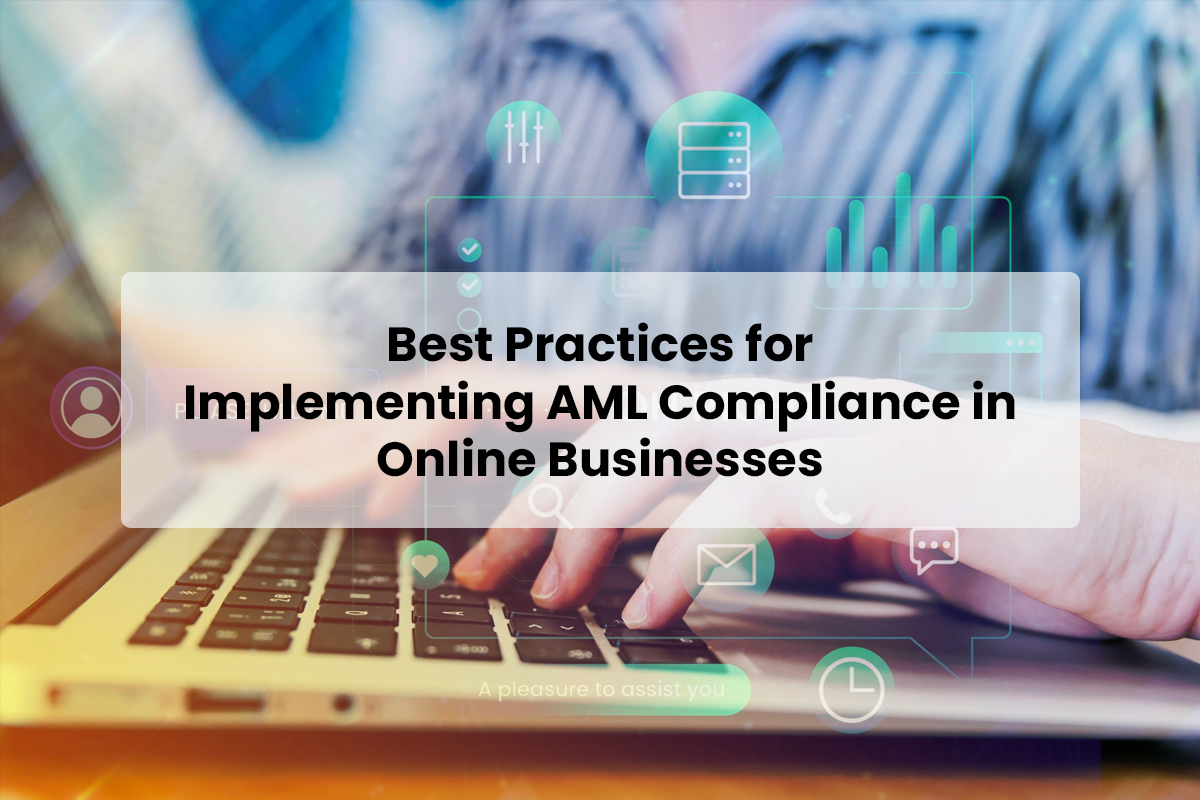
Operating an online business requires anti-money laundering (AML) compliance, particularly in sectors related to financial transactions, bitcoin, e-commerce, and digital banking. To stop illegal financial activity like money laundering and terrorist financing, regulatory authorities worldwide have set rigorous AML policies. Companies which neglect to put in place sensible AML policies run the danger of being subject to fines, reputation damage, and even legal action.
Online businesses must create strong AML compliance systems given the growing complexity of financial crimes. Advanced tools for automating AML procedures made available by solutions like Kyrosaml.com help companies to effectively handle customer due diligence (CDD), transaction monitoring, and risk assessment.
Establishing a Strong AML Compliance Framework
Knowing the dangers of financial crimes is the first step in developing a systematic anti-money-laundering compliance program. Companies should conduct extensive risk analysis to find operational weaknesses. One has to take into account elements such as geographic areas, consumer profiles, and the kinds of transactions. Once potential risks are found, companies can design rules and processes specifically meant to minimize these potential risks.
Maintaining AML compliance depends a great deal on employee training. Workers should be trained on how to spot suspicious activity, alerting unusual behaviors, and comprehending pertinent AML regulations. The execution of AML rules should be supervised by an authorized compliance officer guaranteeing adherence to local and international regulatory criteria.
Customer Due Diligence and Know Your Customer (KYC)
Preventing illegal financial activity depends mostly on Customer Due Diligence (CDD) and Know Your Customer (KYC) processes. Before allowing their consumers to make purchases, online companies have to confirm their identities. Essential consumer data like full name, address, date of birth, and government-issued identity is gathered in KYC processes.
High-risk consumers—including politically exposed persons (PEPs) and those from countries with a high risk of financial crime—may call for enhanced due diligence (EDD). Kyrosaml.com and other automated solutions serve to simplify CDD and KYC procedures so that companies can effectively check customer identities while maintaining regulatory compliance.
Implementing Real-Time Transaction Monitoring
One important aspect of anti-money-laundering compliance is the real-time monitoring of customer transactions. Companies have to create automated systems capable of identifying and flagging suspicious behavior including huge, erratic transactions, rapid fund movement, or several transactions just below regulatory reporting thresholds.
Transaction monitoring systems using artificial intelligence and machine learning can spot trends indicative of attempts at money laundering. Real-time monitoring tools available on sites like Kyrosaml.com allow companies to quickly evaluate transactions and act appropriately when anomalies show up. Automated warnings enable compliance teams to react quickly, thus lowering the likelihood of financial crime slipping through unnoticed.
Reporting Suspicious Activities
A company must notify the relevant financial regulatory agencies if it discovers what it believes to be fraudulent transactions. Filing Suspicious Activity Reports (SARs) and keeping records for compliance audits must be done methodically by businesses.
Maintaining precise records is crucial to the success of any anti money-laundering compliance program. Regulatory agencies mandate that companies save transaction records, client identity information, and compliance reports for a specified period. Kyrosaml.com and other digital tools guarantee safe data storage as well as easy retrieval, therefore enabling companies to rapidly access records as needed.
Staying Up to Date with AML Regulations
Regulatory requirements for AML compliance are always evolving. Companies need to monitor the evolution of anti-money-laundering regulations and revise their compliance plans appropriately. Frequent internal audits help to assess the performance of current AML regulations and highlight up areas that call for improvement.
Using modern technological solutions and working with AML compliance professionals guarantees companies stay ahead of legislative developments. Platforms like Kyrosaml.com give companies the tools they need to evolve with changing compliance criteria, therefore reducing their non-compliance risk.
Wrapping Up
Protecting online businesses from financial crimes and regulatory breaches depends on an effective AML compliance program being implemented. Businesses can guarantee compliance by using a proactive approach including risk assessment, customer validation, transaction monitoring, and regulatory reporting, therefore fostering confidence among financial institutions and consumers.
Kyrosaml.com and other automated solutions streamline AML compliance so companies can focus on expansion knowing they are kept safe from financial crime issues. Online companies trying to run securely and effectively in today's digital economy will depend on staying ahead with the right AML tactics and tools as regulations evolve.
Share this post
Leave a comment
All comments are moderated. Spammy and bot submitted comments are deleted. Please submit the comments that are helpful to others, and we'll approve your comments. A comment that includes outbound link will only be approved if the content is relevant to the topic, and has some value to our readers.

Comments (0)
No comment